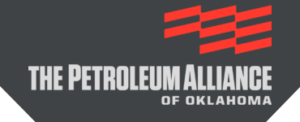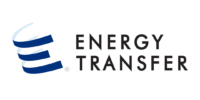2023 COMMENTS
Environmental Protection Agency (EPA)
Proposed Oil and Gas Methane Rule – On Feb. 13, The Alliance submitted comments to EPA on its proposed supplemental oil and gas methane rule. The Alliance’s comments focused on several concerning issues including, but not limited to, the one-size-fits-all requirements for new and existing sources, the super-emitter program, fugitive emission monitoring, oil and gas well closure requirements, pneumatic controllers/pumps, and flares and enclosed combustion devices. The Alliance also joined comments submitted by a trade coalition led by the Independent Petroleum Association of America. Several Attorneys General (led by West Virginia) submitted comments to EPA. Oklahoma Attorney General Gentner Drummond signed on to those comments. Oklahoma’s Secretary of Energy & Environment, Ken McQueen, submitted comments as well.
State Implementation Plans — On Feb. 27, The Alliance joined the Independent Petroleum Association of America and several other oil and gas industry trade groups to submit comments to EPA on its proposed rule that revises the implementing regulations that govern the processes and timelines for state and federal plans under Clean Air Act section 111(d). The comments focused on issues including the relationship between this proposed rule and EPA’s proposed NSPS OOOOc rule, inadequate state implementation plan submittal timeframes, and limits on a state’s ability to consider remaining useful life of equipment at existing facilities.
Water Quality Standards (WQS) Regulatory Revisions To Protect Tribal Reserved Rights – On Mar. 3, The Alliance submitted comments to EPA on its proposed revisions to the Clean Water Act that prescribe how WQSs must protect aquatic and aquatic-dependent resources reserved to Tribes through treaties, statues, and other sources of Federal law. The Alliance’s comments focused on EPA’s authority, the Oklahoma provision within the Safe, Accountable, Flexible, Efficient Transportation Equity Act of 2005 (SAFETEA), and the burdens and financial impacts on the state regulatory agency. In addition, the Oklahoma Secretary of Energy & Environment and the Department of Environmental Quality submitted comments.
EPA’s Efforts to Reduce Greenhouse Gas (GHG) Emissions from Electric Generating Units (EGUs) — On March 23, The Alliance submitted comments to EPA regarding its forthcoming rule to reduce GHG emissions from EGUs. Comments focused on the need for EPA to recognize that the oil and natural gas industry will continue to play a significant role in power generation, and on the overarching issues of reliability, affordability, and compliance with the Clean Air Act and the recent Supreme Court decision in West Virginia v. EPA.
Supplemental Rulemaking – Greenhouse Gas Reporting Rule (GHGRR) — On July 21, The Alliance, along with other industry trade groups, joined API in submitting comments to EPA on its proposed supplemental GHGRR. The comments focused on several proposed revisions including Subpart B, Energy Consumption (i.e., Scope 2 emissions). In addition, The Alliance submitted additional comments on the proposed supplemental rule.
Proposed Engine Reporting Rule — On Aug. 25, The Alliance submitted comments to EPA regarding its proposed rule that amends the National Emission Standards for Hazardous Air Pollutants for Reciprocating Internal Combustion Engines, the New Source Performance Standards (NSPS) for Stationary Compression Ignition Internal Combustion Engines, and the NSPS for Stationary Spark Ignition Internal Combustion Engines. EPA’s proposal requires oil and gas operators to report to EPA in lieu of reporting to the Oklahoma Department of Environmental Quality (ODEQ), the agency with EPA delegated authority to manage those programs. The Alliance’s comments focused on EPA’s failure to evaluate the cost impacts to smaller oil and gas businesses, its failure to provide information on how ODEQ’s reporting program is inadequate or has failed, and why EPA cannot obtain the information it seeks directly from ODEQ.
Bureau of Indian Affairs (BIA)
Oil and Gas Development in the Osage Mineral Estate — On March 17, The Alliance submitted comments to BIA on its proposed regulations for oil and gas development in the Osage Mineral Estate. Comments focused on the sweeping nature of the proposed rule, the lack of rationale or assumptions for the requirements, the lack of a detailed cost impact analysis, and the need for education and outreach to oil and gas operators to facilitate compliance.
Bureau of Land Management (BLM)
Proposed Rule – Rights-of-Way, Leasing, and Operations for Renewable Energy — On Aug. 15, The Alliance, and other industry trade groups, joined comments submitted by API to BLM on its proposed rule. The comments focused on procedural issues associated with the proposed changes that would alter basic principles of federal land management, create an unlevel playing field among energy sources, and potentially restrict access for other traditional federal land uses (including oil and natural gas development) in some areas for decades to come.
Fish and Wildlife Service (FWS)
Proposed Enhancement of Survival (EOS) and Incidental Take (IT) Permits Rule — On Monday, April 10, The Alliance submitted comments to the FWS on its proposed EOS and IT Permits rule. Comments focused on several issues including proposed provisions outside the FWS’s authority under the Endangered Species Act, the lack of a justification and transparency of proposed revisions, and the FWS’s failure to address costly and burdensome EOS and IT permit requirements. The Alliance also joined comments submitted by the Permian Basin Petroleum Association, Western Energy Alliance, and the Petroleum Association of Wyoming.
Proposed Rules (Listing/Reclassifying/Delisting, Blanket 4(d), and Interagency Cooperation) — On Aug. 21, The Alliance submitted comments to the FWS on three proposed rules. In general, the proposals undo clarity or regulatory certainty that the 2019 rules provided.
Office of Management and Budget (OMB)
Revisions to Circular No. A-4 – On June 20, The Alliance joined comments submitted by API and other industry trades groups on OMB’s proposed revisions to Circular No. A-4 that guides federal agencies in conducting cost and benefit analysis of regulatory actions. In general, the comments focused on the need for the revised Circular No. A-4 to be as objective as possible, avoid guiding agencies to specific outcomes or conclusions, and to ensure regulatory actions are beneficial and cost-effective.
Pipeline and Hazardous Materials Safety Administration (PHMSA)
Proposed Rule – Pipeline Safety: Gas Pipeline Leak Detection and Repair (LDAR) — On Aug. 16, The Alliance joined detailed comments submitted to PHMSA by GPA Midstream Association, the American Petroleum Institute, the Independent Petroleum Association of America, and other trade groups on the proposed pipeline LDAR rule. In addition, The Alliance submitted comments that focused on gathering lines and LDAR requirements.
U.S. Senate Committee on Environment and Public Works (EPW)
Per- and Polyfluoroalkyl Substances (PFAS) Legislation – On July 14, The Alliance, along with other industry trade groups, joined API’s comment letter to the EPW on draft PFAS legislation that was released on June 22. The Trade’s comments raised concerns that the designation of PFAS as a hazardous substance under the Comprehensive Environmental Response, Compensation, and Liability Act (CERCLA) would subject its members to litigation and enforcement actions at facilities that use or have used aqueous film forming foam (AFFF) for fire prevention and suppression tool in fighting petroleum or chemical fire events that protect the public and critical infrastructure and save lives. The comments expressed the need for an exemption from CERCLA for facilities that use or have used PFAS-containing AFFF as part of their fire suppression system until alternative options are developed.
Oklahoma Department of Environmental Quality (ODEQ)
Climate Pollution Reduction Grant (CPRG) Plan — On Sept. 14, The Alliance submitted comments to ODEQ regarding its CPRG Plan. The Alliance’s comments generally focused on funding studies and projects that help oil and gas operators prepare for future EPA methane rules, obtain more accurate, Oklahoma-specific equipment emissions data, and fund projects that reduce emissions and/or replace emitting equipment.
2022 COMMENTS
Environmental Protection Agency (EPA)
Designation of Perfluorooctanoic Acid (PFOA) and Perfluorooctanesulfonic Acid (PFOS) under the Comprehensive Environmental Response, Compensation, and Liability Act as Hazardous Substances – The Alliance joined API and several other oil and gas trade groups to provide comments to EPA on its proposed rule to designate PFOA and PFOS as hazardous substances under CERCLA. These chemicals can be found in many products used in the oil and gas industry e.g., foams for firefighting and fire prevention activities at oil and gas sites, refineries, and many other facilities where there are flammable or combustible liquids. The coalition’s comments focused on several issues including EPA’s authority under CERCLA, EPA’s failure to consider the true costs and benefits, and EPA’s lack of consideration of numerous detrimental consequences e.g., the proposal would subject significant new areas of the country to CERCLA cleanup liability, delay existing cleanups, create waste stream management uncertainty, and potentially cause previously completed remediation projects to be reopened.
Proposed Greenhouse Gas Reporting Rule (GHGRR) Revisions — On Oct. 6, The Alliance submitted comments to the EPA regarding its proposed revisions to the GHGRR. Though some of the changes were positive, The Alliance had concerns with the current requirements and proposed revisions that contain emission factors and estimation methodologies that do not reflect actual emissions. More exact emission data will become important when operators begin to pay methane fees in accordance with the Inflation Reduction Act.
Proposed 401 Certification Rule — On Aug. 8, The Alliance submitted comments to EPA regarding its proposed 401 Certification Rule. Federal agencies cannot issue a license or permit to conduct any activity that involves the discharge into waters of the United States unless a state or tribe with treatment as a state (TAS) where the discharge would originate grants either a Section 401 certification that the discharge will comply with applicable provisions of the Clean Water Act or waives certification. EPA’s proposed TAS process for tribes to obtain 401 certification authority does not address the current regulatory authority the State of Oklahoma obtained through the Safe, Accountable, Flexible, Efficient Transportation Equity Act of 2005 and approved by EPA in 2020. The Alliance also worked with the American Petroleum Institute and other trades to develop technical comments on EPA’s proposed rule.
Federal Implementation Plan (FIP) Addressing Regional Ozone Transport for the 2015 Ozone National Ambient Air Quality Standard — The Alliance submitted comments to EPA on its proposed FIP for Oklahoma. For the first time, EPA proposed to regulate non-electric generating units that include requirements for certain natural gas-fired, spark-ignition reciprocating internal combustion engines with a maximum rated capacity of 1,000 horsepower or greater in the natural gas pipeline transportation sector. The Alliance requested EPA approve Oklahoma’s original State Implementation Plan (SIP) on ozone transport or allow the State to revise its SIP. In addition, The Alliance requested EPA work closely with the State of Oklahoma to ensure that the regulation of pipeline emission sources is necessary, limit requirements on pipelines to the ozone season, and extend the compliance deadline for pipelines to at least May 2027.
Waters of the U.S. (WOTUS) — On Feb. 7, The Alliance submitted comments to EPA and the Army regarding their proposed WOTUS rule that defines those waters protected under the Clean Water Act (CWA). The proposal “generally” returns the requirements to the pre-2015 rule, but it also includes amendments. Those amendments expand the scope of WOTUS and the Agencies’ jurisdiction beyond the pre-2015 rule. The proposed rule may require oil and gas operators to obtain more CWA Sec. 404 permits (e.g., for pipelines, roads, well locations) and develop more Spill Prevention, Control and Countermeasure plans. The Alliance submitted comments opposing the proposed rule as it does not establish clear boundaries of WOTUS or provide regulatory certainty, consistency and predictability for our members.
Proposal to Withdraw and Reconsider Oklahoma’s Regulatory Authority in Indian Country — On Jan. 31, The Alliance submitted comments to EPA requesting it drop its proposal to withdraw and reconsider its October 2020 approval of Oklahoma’s request to extend its EPA-delegated environmental regulatory programs into certain areas of Indian country within the State under Section 10211(a) of the Safe, Accountable, Flexible, Efficient Transportation Equity Act of 2005 (SAFETEA). The Alliance’s comments focused on EPA’s approval process i.e., it was conducted consistent with SAFETEA, the approval provides an efficient, effective, and consistent means of implementing EPA-delegated environmental regulatory programs across Oklahoma, and it provides the necessary regulatory consistency and certainty for all stakeholders.
Proposed New Source Performance Standard (NSPS) OOOO a/b/c Rule — On Jan. 31, The Alliance submitted comments to EPA regarding its proposed NSPS OOOO a/b/c rule. The Alliance’s comments focused on a number of issues, but in general, The Alliance emphasized the need for requirements that are reasonable, practical, provide operators flexibility, and are economical to implement by all sizes of oil and gas businesses, especially small oil and gas operators.
Fish and Wildlife Service (FWS)
Proposed Compensatory Mitigation Mechanisms Rule – On Sept. 26, The Alliance submitted joint comments with API, the Alaska Oil & Gas Association and Western Energy Alliance regarding the FWS’s proposed Compensatory Mitigation Mechanisms rule. The trade groups provided several comments, but in general, stated that a “one size fits all” approach should not apply to all compensatory mitigation mechanisms as such an approach may favor a particular type of compensatory mitigation over other effective approaches, and may deter participants from engaging in compensatory mitigation as it will be more costly, complex, burdensome, opaque, and unpredictable.
Designation of Experimental Populations — On Aug. 8, The Petroleum Alliance of Oklahoma and Western Energy Alliance submitted comments to the FWS regarding its proposed rule to designate experimental populations under the Endangered Species Act (ESA). Our comments expressed concern that the proposed experimental population rule, in combination with additional proposed and finalized changes to the ESA’s implementing regulations, will unnecessarily and unreasonably expand the scope of the ESA and FWS’s ability to limit development within certain habitats, will be used to needlessly introduce imperiled species into producing oil and gas basins without a history of the lands supporting such species and without reasonable expectations that the experimental populations will survive, and it may be used as a tool to hinder or entirely block oil and gas development in existing producing areas.
Occupational Safety and Health Administration (OSHA)
Heat Injury and Illness Prevention in Outdoor and Indoor Work Settings – On Jan. 26, The Alliance submitted comments on OSHA’s advance notice of proposed rulemaking (ANPRM) to address heat injury and illness prevention in outdoor and indoor work settings. Since no specific rule text was provided in the ANPRM, The Alliance’s comments were general in nature. We encouraged OSHA to avoid a “one-size-fits-all” rule, focus its efforts on improving current processes and programs in place, develop additional non-regulatory efforts and work with states experiencing the most significant issues to enhance worker safety as it relates to heat injury and illness.
Securities and Exchange Commission (SEC)
Climate-related Disclosure Rule — On June 16, The Alliance submitted comments to the SEC regarding its Proposed Climate-related Disclosure Rule. The Alliance opposed the Rule; however, we provided a number of comments and recommendations. For example, we requested SEC use the same information companies submit to EPA’s Greenhouse Gas Reporting Program, remove subjective data requirements to reduce liability and litigation, provide longer implementation time frames, justify how Scope 3 emissions are material to investors, analyze the cost impacts on private companies and small businesses, and allow companies to furnish (not file) information.
U.S. Army Corps of Engineers (COE)
Request for Input — On Aug. 2, The Alliance submitted comments to the COE regarding its request for input that will be used to inform future rulemaking efforts related to several issues, including rulemaking actions regarding the COE’s Regulatory Program (e.g., Nationwide Permits and Jurisdictional Determinations) that focuses on National Historic Preservation Act, environmental justice and Tribal consultations. Since no rule text was proposed by the COE, The Alliance’s comments were general in nature.
Nationwide Permit (NWP) 12 — On May 27, The Alliance submitted comments to the COE regarding its formal review of NWP 12 for Oil or Natural Gas Pipeline Activities. In general, NWPs streamline the permitting process for certain activities under Section 404 of the Clean Water Act and Section 10 of the Rivers and Harbors Act of 1899 that have minimal individual and cumulative impacts to the environment. The Alliance’s comments requested the COE discontinue its review and maintain NWP 12 as it currently exists since NWP 12 was updated in January 2021, a comprehensive review was conducted by the COE at that time, and there is no regulatory deadline or widespread, pervasive need warranting yet another revision so soon.






